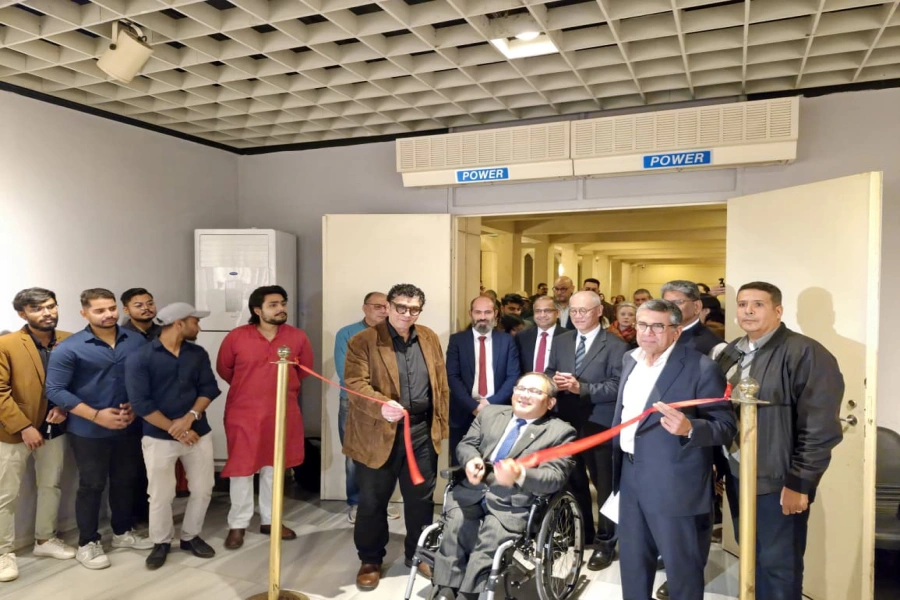Over the past few years, Nepal has emerged as a significant transit hub for cocaine trafficking, a trend that carries broader regional consequences. For instance, cocaine seizures have surged from 11.8 kg in 2023 to over 30 kg in 2024. This alarming increase indicates that the networks involved in this illicit trade are increasingly using Nepal as a route to India. The seriousness of the issue was underscored on December 1 when officials at Tribhuvan International Airport (TIA) apprehended a Kenyan national with 6.2 kg of cocaine concealed inside a teddy bear. Valued at approximately Rs 217 million, this marks the largest cocaine seizure of the year and points to a more extensive and entrenched trafficking network. The Narcotics Control Bureau (NCB) of Nepal Police attributes this rise to Nepal's geographical position and insufficient enforcement capabilities, making it an attractive transit point for traffickers heading to Indian markets.
Investigations have revealed that the cocaine entering Nepal primarily comes from Latin American countries, particularly Bolivia and Colombia. The trafficking route is notably complex: from these nations, the drugs often pass through African countries in secondary transits, especially Nigeria and Ethiopia, before reaching their final destination via major or minor transits through Doha or Dubai—routes largely controlled by international drug syndicates, with a significant representation of Nigerians as key players.
The methods employed by traffickers have evolved to evade Nepali authorities. While carriers from Africa and Latin America were once the main culprits, recent arrests—such as that of a Latvian national caught with over 6 kilograms of cocaine—suggest a diversification in the strategies of traffickers. This clearly emphasizes the need for Nepal's enforcement agencies to stay ahead of the changing tactics of criminal networks.
Bolivian national nabbed with cocaine

Despite the commendable efforts made by the NCB, systemic deficiencies persist, undermining Nepal's ability to effectively combat cocaine trafficking. Currently, the law enforcement agencies do not have the mandate to screen incoming passengers or even their luggage directly. Thus, they are forced to depend mainly on information coming from immigration officers and rudimentary monitoring of passenger lists. Such a reactive approach, although yielding some results, has been grossly insufficient for the task at hand.
The situation is compounded by a lack of modern detection gear. Body scanners and drug-screening machines that are commonplace at many international airports are conspicuous in their absence at TIA. This resource crunch severely compromises the operations of the NCB, while simultaneously emboldening traffickers to take advantage of the weaknesses inherent in Nepal.
It goes without saying that changes must be made at the policy level. The placement of police officials at immigration desks with appropriate screening authority would increase enforcement effectiveness considerably. Otherwise, Nepal risks becoming an entrenched node in the global cocaine supply chain. Increased Nepali involvement in cocaine trafficking will have consequences that reach far beyond the borders of the country. Nepal's position as a key transit country makes it a major player in the trafficking of a large quantity of cocaine to India, which is home to one of the world's largest and fastest-growing illicit drug markets. The socio-economic impact—most notably, the spread of drug addiction—is massive. For Nepal, there is not only reputational damage but also the risk of increased domestic drug abuse. Although the use of cocaine is relatively low in Nepal due to its high price, increased trafficking activity brings with it the risk of greater availability and heightened local demand.
Clearly, the situation calls for effective and timely action. The government should invest in technology and provide the security personnel with modern body scanners and highly efficient drug detection systems. This would significantly bring an increase in the effectiveness and speed of screening processes, hence allowing the authorities to catch traffickers more effectively. Moreover, the government should consider allowing police direct access to passenger screening and luggage searches in airports. This will reduce dependence on third-party tips and make possible a much more proactive response to enforcement.
Strengthening the NCB with training and an increase in personnel strength would put the bureau in a position to effectively combat organized trafficking networks. The international agencies can also contribute considerably by offering technical know-how. Since cocaine trafficking is a transnational problem, there is an overwhelming need for closer cooperation with neighboring countries, especially India. The coordination of joint operations, sharing of intelligence, and formulating the right policies can dismantle the syndicates functioning across the borders.
While the recent rise in drug seizures may be viewed as a positive development and an encouraging sign of effective new efforts, it is also, in another sense, evidence of the large scale the problem has reached. The traffickers are becoming more sophisticated in their methods, and it becomes the duty of the Government of Nepal to respond with equal ingenuity and determination. The fight against cocaine trafficking goes far beyond law enforcement—this is a serious battle for the soul of the country and the future of its people. Any additional delay is unjustifiable. Delays are sure to increase Nepal's entanglement in the dangerous commerce, with seriously adverse impacts on the sub-region as well as further beyond.




-1200x560-1771928761.webp)


































